Industrial practice at the Tashkent Pharmaceutical Institute
The 4th-year students of the Pharmacy Faculty of the Academy completed the industrial practice “Quality Control and Standardization of Medicines” at the Department of Pharmaceutical Chemistry and the Scientific Testing Center for Standardization of Medicines of TashPharmI.
The students completed the planned volume of the industrial practice program, which included familiarizing the interns with the regulatory documentation governing the quality control of medicines in the Republic of Uzbekistan, conducting a complete pharmacopeial analysis of substances, tablets, capsules, injection solutions, ointments in accordance with the requirements of the State Pharmaceutical Fund of the Republic of Uzbekistan using general pharmacopeial methods of physical, chemical and physicochemical analysis.
In determining the quality parameters of medicinal products, trainees acquired practical skills in working with dissolution and disintegration testers “Agilent DS-70S” (Japan), abrasion and strength testers “EF-155” (Germany), etc.
Working on the automatic titrator "MettlerToledo" V-30S Compact (Switzerland) for determining moisture by the Fisher method allowed to obtain accurate results and significantly reduce the analysis time. The students received practical skills in working on the melting point meter Melting Point Apparatus (Semi-Automatic), semi-automatic M3000 (Germany).
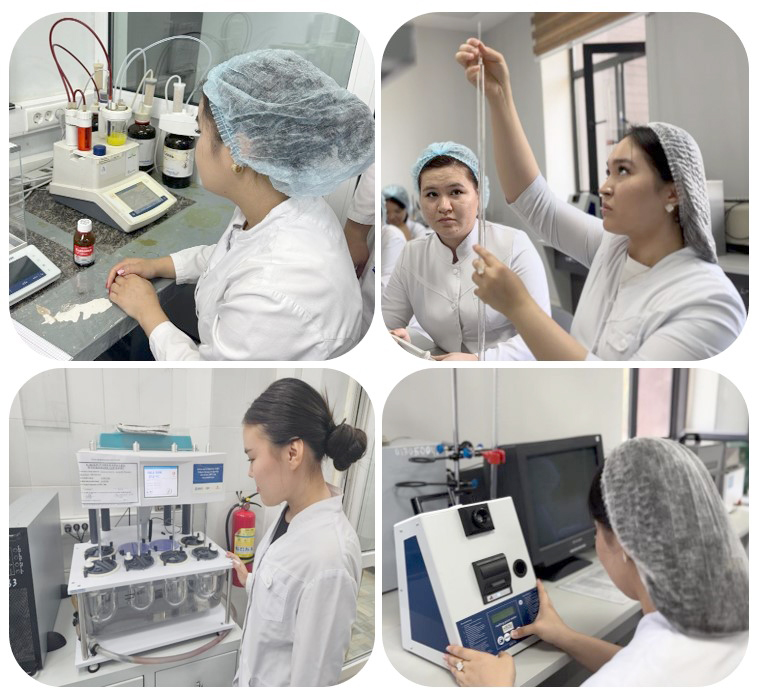
The SP-UV759CRT spectrophotometer, Labtex (India) was used to identify, quantify, and determine the purity of medicinal products. The trainees reinforced their theoretical knowledge with practical skills in interpreting UV spectra, performing quantitative content calculations, etc. The trainees also identified medicinal products using IR Fourier spectroscopy on a spectrometer, IRAffinity-1S, Shimadzu (Japan).
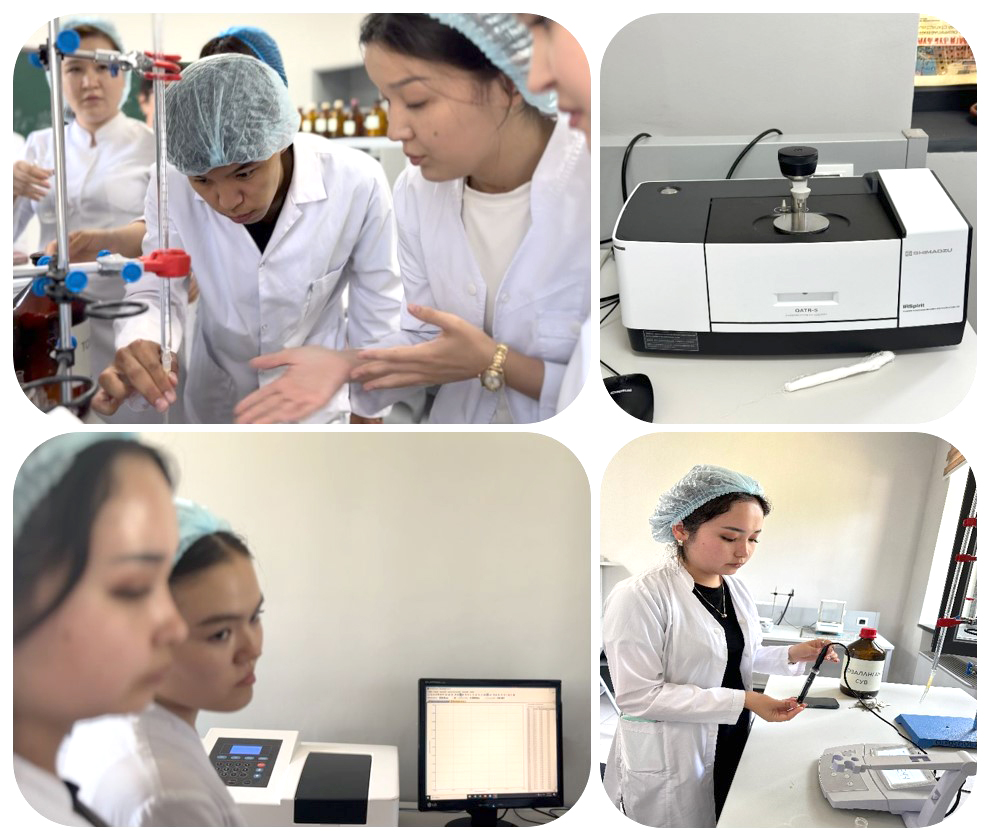
The students were impressed by the capabilities of the LC-20 Prominence high-performance liquid chromatograph by Shimadzu (Japan) when conducting pharmacopoeial analysis of identification, determination of related impurities and quantitative content of drugs.
During the complete pharmacopoeial analysis of albendazole SD tablets on a high-performance liquid chromatograph, the trainees were convinced that stable practical skills are necessary for using this method in quality control of drugs.
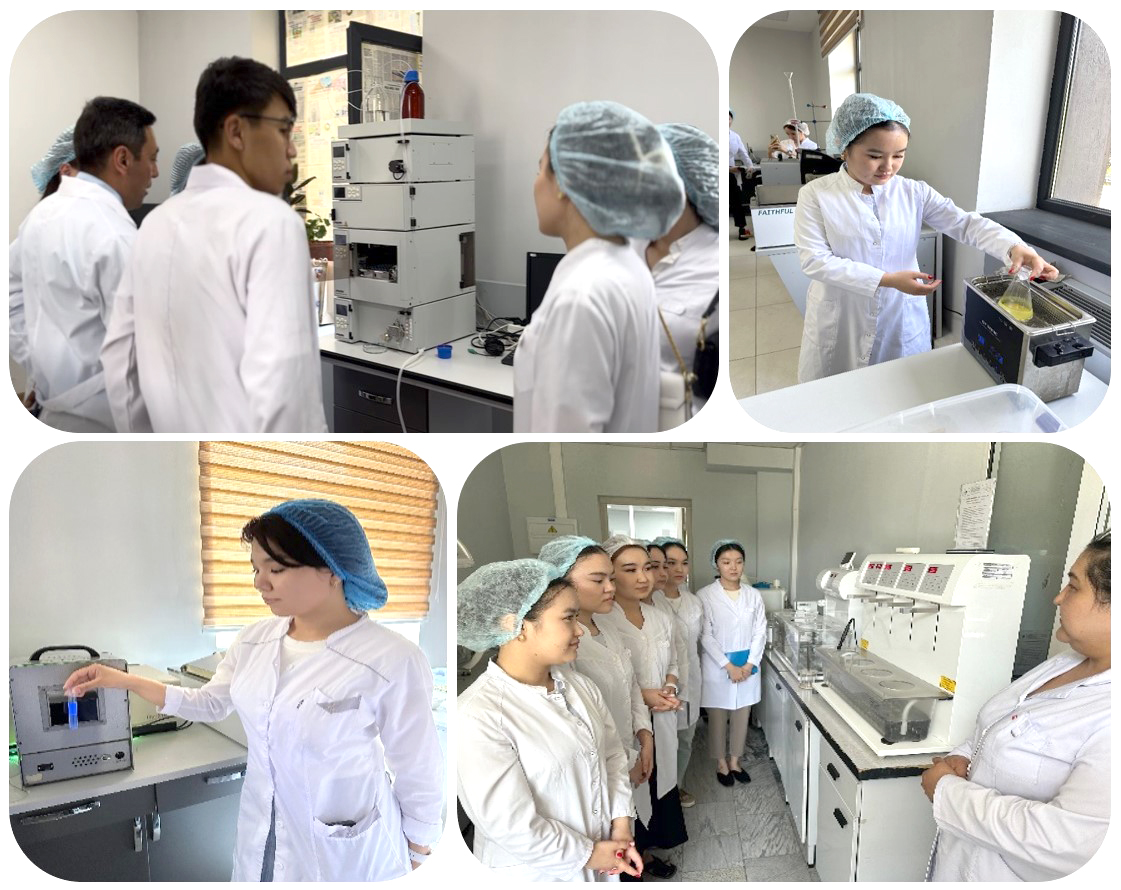
The interns got acquainted with local attractions and visited historical museums of the city. The State Museum of History of Uzbekistan is located in Tashkent, as is the State Museum of Nature of Uzbekistan, which is the oldest museum in Central Asia and Tashkent, tracing its lineage back to the People's Museum of Turkestan. In addition, the students visited the Art Gallery of Uzbekistan and viewed the works of modern artists. The Art Gallery of Uzbekistan was created in the city of Tashkent after the proclamation of independence of the Republic of Uzbekistan and has become one of the most visited modern museums by local residents in Uzbekistan.
In addition, the students visited a large dome-shaped mountain range that is part of the Chatkal Range. The highest point of the massif is known as the Big Chimgan peak and has a height of 3309 m.
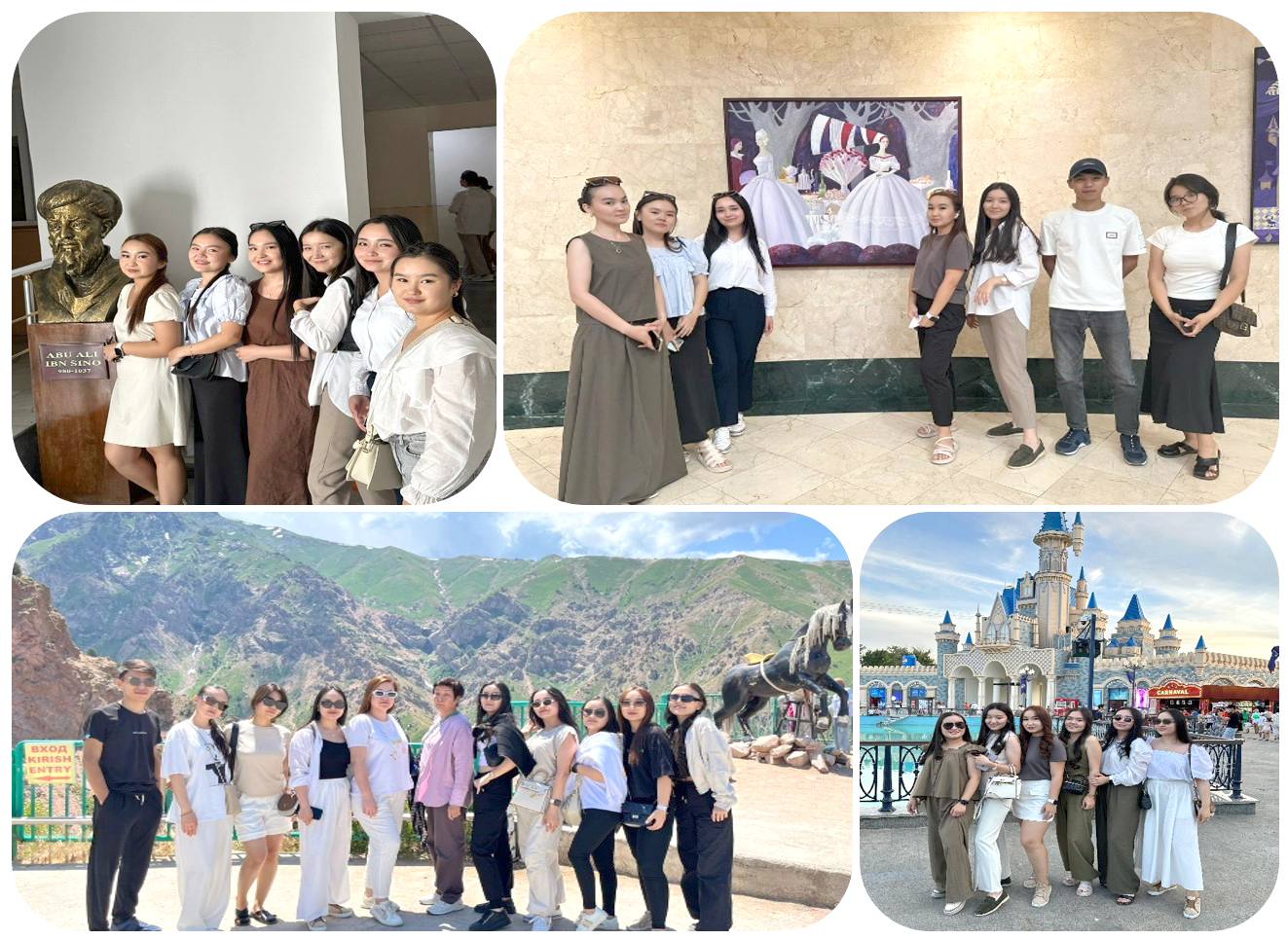
The students noted that the internship helped them gain new knowledge and practical skills in the field of pharmacopoeial analysis, and feel more confident in the field of quality control of medicines.
The students expressed their sincere gratitude to the rector of the Tashkent Pharmaceutical Institute Rizaev K.S. and the director of the scientific testing center for standardization of medicines Zhuraev A.A. for the opportunity to undergo industrial practice and expressed their wishes for further continuation of such experience within the framework of academic mobility and training in the semester
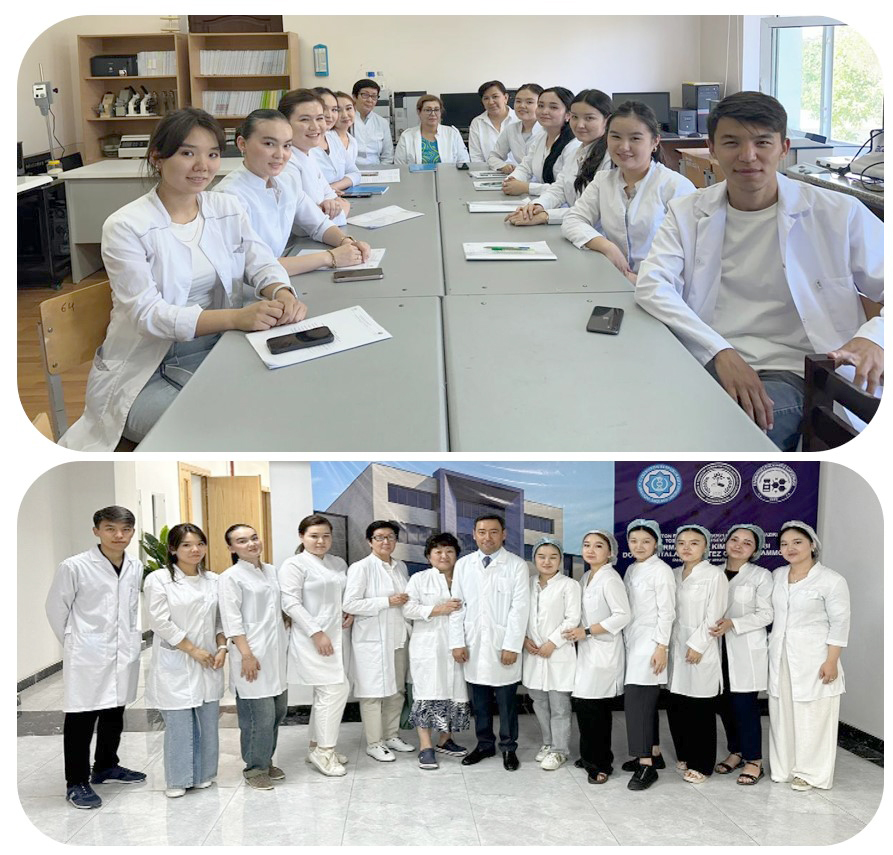
 852 views
852 views
